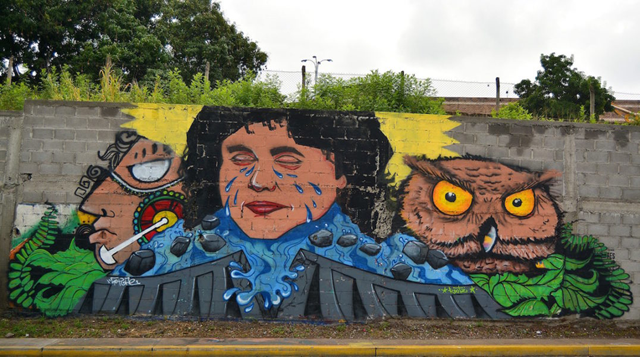In Latin America, environmentalists are an endangered species – ‘There is an increase in pressure to exploit resources that have not been exploited yet’
By Lindsay Fendt
11 August 2016 (mongabay.com) – On a Tuesday in March, indigenous activist Nelson García was shot in the face in northwest Honduras. The next day, in Guatemala, unknown attackers found environmentalist Walter Méndez outside his home and filled his chest with bullets. Two weeks earlier gunmen killed Berta Cáceres, an internationally renowned environmental campaigner, in her Honduran home. And in the months before, similar killings were reported in Brazil, Mexico, and Peru. Since 2010, murders over land disputes have been on the rise worldwide, but the problem is especially severe in Latin America, according to U.K.-based NGO Global Witness. The group documented more than 900 environmentalists killed in the region between 2002 and 2015. Last year was the deadliest year on record, with 185 murders worldwide, nearly two-thirds of them in Latin America, according to a report the group released in June. “There is an increase in pressure to exploit resources that have not been exploited yet,” John Knox, a Special Rapporteur on human rights and the environment for the United Nations, told Mongabay. “You have very powerful economic interests on one hand and marginalized communities on the other and that seems to be leading to these conflicts [worldwide].” Though in Latin America the reasons for the killings vary, many are related to a surge in development in remote parts of the region. Seeking out foreign investment, governments have been granting concessions to foreign-funded hydroelectric dams, mines, and other projects, often without consulting the communities already occupying the land. Meanwhile, landless ranchers, poachers, and illegal loggers are also pushing into remote areas in search of untapped resources. Most of the encroached-upon areas have been inhabited by indigenous groups or subsistence farmers for generations, but many communities lack titles or deeds for their land. With little government assistance, some members of these communities are opposing environmental destruction on their own and paying the ultimate price. “It is one of the most serious injustices in the world,” said Bill Kovarik, a professor at Radford University in Virginia who tracks murders of green activists. “For every one of these very serious deaths there are dozens of others that face violence.” [more]
In Latin America, environmentalists are an endangered species
